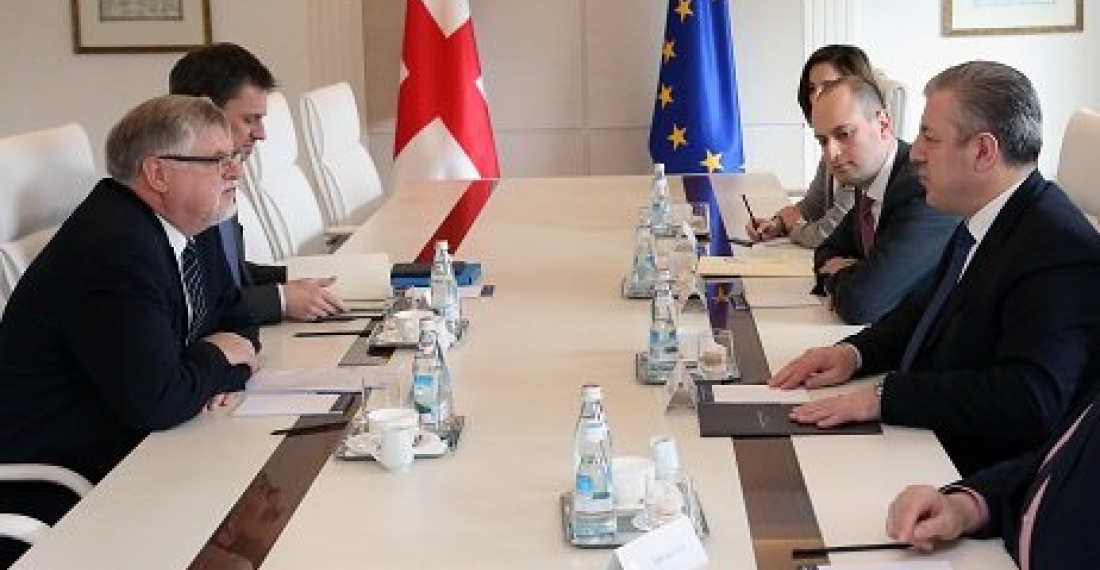The European Union Special Representative (EUSR) for the South Caucasus, Ambassador Herbert Salber, on Tuesday (14 February) met with Georgian Prime Minister Giorgi Kvirikashvili in Tbilisi.
The two sides discussed the current situation in the separatists territories of Abkhazia and South Ossetia
Georgian sources said that Prime Minister Kvirikashvili expressed his regret that despite the Georgian government's peaceful policy and efforts to promote reconciliation and confidence-building between , Russia has been intensifying the isolation of the territories and continues to take steps towards their annexation.
Kvirikashvili believes that these actions by Russia undermine the region's stability and endanger the international system grounded in democratic values.
The parties also emphasised the importance of the Geneva International Talks as the paramount mechanism for discussing problematic issues and making appropriate decisions.
source; commonspace.eu with agenda.ge
photo: EUSR Herbert Salber met the Primem Minister of Georgia, Giorgi Kvirikashvili in Tbilisi on Tuesday, 14 February 2017. (picture courtesy of agenda.ge)







